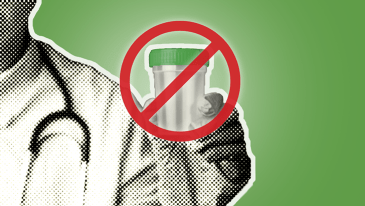Democratic Gov. Gavin Newsom has signed a number of marijuana-related bills into law, including legislation protecting employees from workplace discrimination.
Specifically, Assembly Bill 2188, makes “it unlawful for an employer to discriminate against a person in hiring, termination, or any term or condition of employment, or otherwise penalize a person, if the discrimination is based upon the person’s use of cannabis off the job and away from the workplace” as determined by a positive drug screen for the presence of the carboxy THC metabolite. Carboxy THC is an inactive byproduct of THC that may be present in a urine sample for as many as 100 days post-abstinence. As per the United States Department of Justice, the detection of this metabolite “only indicates that a particular substance is present in the test subject’s body tissue. It does not indicate abuse or addiction; recency, frequency, or amount of use; or impairment.”
The law, which does not go into effect until January 1, 2024, is similar to those already enacted in several other adult-use states, including Connecticut, Montana, New Jersey, New York, and Rhode Island. Nevada law makes it “unlawful for any employer in to fail or refuse to hire a prospective employee” based upon a marijuana test failure; nonetheless, employees who consume cannabis off-the-job for non-medical purposes can still be fired by their employers for failing a drug test.
“Urine tests are a highly offensive invasion of workers’ personal bodily privacy,” said Dale Gieringer, the Director of California NORML — which had lobbied for several years in favor of the bill. “They are too frequently abused to discriminate against unpopular workers and minorities. Workers should have the same right to use cannabis as to use other legal substances off the job.”
NORML’s Deputy Director Paul Armentano added: “Urine screening for off-the-job cannabis consumption have never been an evidence-based policy. Rather, this discriminatory practice is a holdover from the zeitgeist of the 1980s ‘war on drugs. But times have changed; attitudes have changed, and in many places, the marijuana laws have changed. It is time for workplace policies to adapt to this new reality and to cease punishing employees for activities they engage in during their off-hours that pose no workplace safety threat.”
California’s economy is the largest in the United States and is the fifth largest in the world.
Governor Newsom also signed several additional bills into law reforming marijuana policies, including AB 2595 — which strengthens parental rights — and Assembly Bill 1954 — which prohibits physicians and surgeons from automatically denying either treatments or medications to patients solely because they consume medical cannabis or because they have tested a positive for THC on a drug screen.
The Governor also signed AB 1706 into law. The measure facilitates existing efforts to review and expunge the records of those Californians with certain cannabis-related convictions on their records. Under existing law, nearly 200,000 Californians have had their marijuana-related records expunged. Passage of the new law is anticipated to provide relief to an estimated 34,000 additional Californians.
The Governor also signed SB 1186 into law, which preempts local bans on medicinal cannabis delivery, thereby expanding patients’ access to legal, regulated cannabis products. (Currently, more than half of the state’s cities and counties prohibit the operation of licensed cannabis businesses.) The bill takes effect on January 1, 2024.
Finally, Gov. Newsom signed SB 1326, which creates a process for California to enter into agreements with other states to allow cannabis transactions with entities outside California. The Governor had previously signed budget legislation reducing various marijuana-specific taxes.
“These important legislative victories are a testament to years of hard work and lobbying efforts by California NORML and others,” NORML’s State Policies Director Jax James said. “These common sense reforms provide further and sorely needed protections and relief for patients and millions of others who California who choose to consume cannabis responsibly.
Additional information is available from California NORML here.











